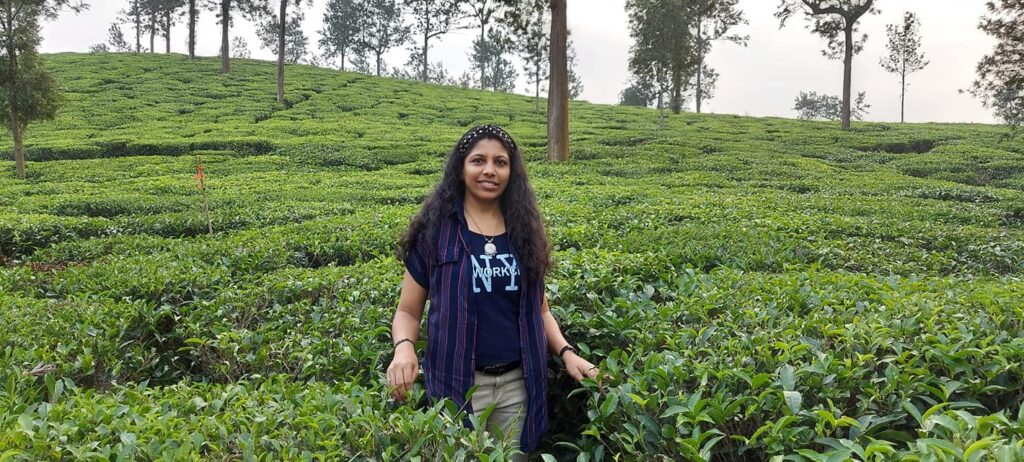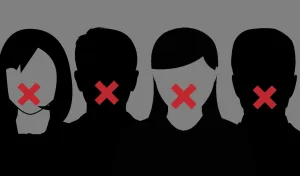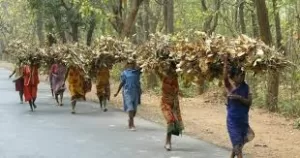On 8 November 2021, the hashtag #DeepaWins trended on Twitter, a celebration that marked the end of the decade-long struggle of Deepa Mohanan, a 36-year old, Dalit PhD scholar and scientist, who had been protesting against caste discrimination meted out to her by the faculty of the International and Inter University Centre for Nanoscience and Nanotechnology (IIUCNN) in Kottayam, Kerala.
Since 2011, a professor at the institute, Nandakumar Kalarikkal, PhD, left no stone unturned to create hurdles for Mohanan in pursuing her doctorate. While Kalarikkal, who started as a joint director at IIUCNN 10 years ago, was promoted to a director, Mohanan— studying nanomedicine—struggled to get a stipend, equipment, access to lab facilities and even a place to sit.
The discrimination against Mohanan, the only Dalit scholar of her batch, continued even as a two-member committee formed by the university in 2015 found Mohanan’s allegations against Kalarikkal to be true. The committee had then recommended that Mohanan be provided research facilities, but nothing changed.
Despite complaints to the police and the university administration, her harasser was not held accountable. When all her efforts failed even six years after her initial complaint was found true, Mohanan went on an indefinite hunger strike on 29 November 2021 seeking Kalarikkal’s expulsion from the institute.
Mohanan alleged that her research guide Radhakrishnan E K, PhD, and vice chancellor Sabu Thomas were complicit in protecting Kalarikkal. In an interview, Thomas was quoted as saying: “How can I expel a faculty member who has such good academic credentials and is quite productive?” He called it an “impossible situation”.
Despite being anaemic and suffering from congenital ventricular septal defect—a hole in the heart—Mohanan embarked on an 11-day hunger strike before Kalarikkal was finally sacked.
Hope And Courage
In an open letter that she posted on Facebook on 31 October 2021, Mohanan wrote: “I cannot move back from the protest without fighting for justice. I should fight for my people. I should win here for many who lost.”
Mohanan’s struggle was significant because she was one of few Dalits able to achieve some justice in a system rife with casteism.
Many similar cases often escape the public eye, and caste-based discrimination in academia largely goes unreported and unnoticed, as victims often give into pressure and are unable to voice their grievances. With little support or appropriate reporting channels at academic institutions, the only way to track such cases is through personal accounts of harassment.
Unfortunately, those involved in cases that do get reported—such as Anil Meena, Balmukund Bharti, Senthil Kumar, Rohith Vemula, J Muthukrishnan, Omkar Baridabad, and Payal Tadvi—often die by suicide when the prospects of justice appear dim.
It is for this reason that Mohanan’s story is significant, sending out a message of hope and establishing a precedent for others.
Mohanan has become a source of inspiration for Dalit students and women who dream of pursing a higher education. Her position as a Dalit female scientist and a young mother busts deeply entrenched stereotypes against women in science.
Her story shows that resistance matters. It also shows that there is more to be done.
Far From Over
Incidents from the recent past show that the larger fight against systemic castestism in academia is far from over. Exclusion, isolation and caste prejudice are common experiences for teachers and students from marginalised communities.
In August 2021, a teacher at the Hindi department of Delhi University’s Lakshmibai College, Ranjit Kaur, allegedly slapped Neelam (who uses only one name), PhD, a Dalit associate professor, in the presence of several other teachers, after she refused to sign the minutes of a meeting without reading them.
Kaur acknowledged a tussle over the register but claimed the violence was not intentional. “During that tussle, it’s possible my hand could have hit her face,” she told The Indian Express. “But it was not an intentional slap.”
Anshu Jharwar, a teacher who witnessed the incident, said: “There were 13 of us there; we all saw what happened. We were stunned that somebody could slap their colleague like this.”
In September 2020, a young Dalit ad hoc assistant teacher of psychology, Ritu Singh, PhD, also alleged caste bias at the hands of Savita Roy, the principal of Daulat Ram College, Delhi University. According to Singh, Roy initially told her that the college did not have enough work for her but hired her later.
Singh has since been sacked by the university on account of “unsatisfactory” performance.
Singh said she was the only ad hoc teaching candidate who did not receive a joining letter and was being so treated because she was Dalit. She also attributed administrative persecution to her involvement in Dalit activism, politics and vocal criticism of India’s ruling Bharatiya Janata Party (BJP).
In another case reported in 2021, Vipin P Veetil, an assistant professor at the Indian Institute of Technology-Madras, resigned alleging caste-based discrimination. Veetil, a PhD in Economics from George Mason University in the US and a postdoctoral fellow from Sorbonne University in Paris was victimised and ostracised because of his caste.
Cast In Caste
In 2018 and 2019, an exam meant to recruit primary school teachers held by the Delhi Subordinate Services Selection Board had a question about the gender of a chamar, a scheduled caste, with the options offered being commonly used upper-caste derogatory references.
That question revealed the deep-seated influence of caste in education.
The persistence of discriminatory behaviour towards colleagues from marginalised communities appears to encourage administrative authorities to act with more cruelty and impunity towards students at the tailend of caste hierarchy.
This was evidenced in April 2021, when a professor of IIT Kharagpur, Seema Singh, called Dalit students “bloody bastards” during an online remedial English class—started upon a recommendation of the Thorat Committee, set up by the government in 2006 to examine discrimination against students from marginalised communities at the All India Institute of Medical Sciences, New Delhi.
In May 2021, Koushal Kumar Mishra, the dean of social sciences and a political science professor at the Banaras Hindu University, Varanasi, remarked in a Facebook post: “In India one does not become a doctor because of one’s capability but because of ‘B R Ambedkar’s Constitution’”. It revealed how a senior faculty member of an accredited university felt confident enough to question affirmative action.
Yet, the government and higher educational institutions continue to do as little as they can to protect the interests of teachers and students from marginalised communities.
The Numbers Never Add Up
Although the law requires 15% reservation in government institutes for SC candidates, 7.5% for ST and 27% for OBC, most academic institutions violate the requirement.
As per the Ministry of Education data covering PhD admissions between 2015 and 2019, none of the Indian Institutes of Information Technology (IITs) fulfilled the government-mandated reservation policy for SC and ST students.
In the years 2017-2020, barely 1.7% of PhD. candidates were STs and 9% were SCs in the 17 IITs . OBC PhD candidates at IITs accounted for 27.4%, a little over the minimum requirement.
A similar pattern of under-representation among PhD candidates was also found at the 31 National Institutes of Technology (NITs) and 7 Indian Institutes of Science Education and Research (IISERs).
Even at the premier Indian Institute of Science (IISc) in Bengaluru, only 9% of candidates admitted to the PhD programmes between 2016 and 2020 were SCs, 2.1% ST and 8% OBC.
Those who beat the odds and make it to such institutions, bear the brunt of discriminatory and exclusionary practices during their courses, often leading to drop outs.
Gross under representation of marginalised communities is, however, not limited to students. There is also a serious lack of diversity amongst faculty. A 2019 report found that less than 3% of those teaching at the IITs across the country were from reserved categories.
Similarly, research by a faculty member and a doctoral student from the Indian Institute of Management (IIM) Bangalore found that of 512 IIM faculty members they could gather information on, only two were SCs; there were no STs.
There is an apparent resistance to reservations in faculty appointments. In 2020, a panel of IIT directors and government officials submitted a report to the Ministry of Education suggesting that IITs should be exempted from reservation in faculty appointments as they are “institutes of national importance”.
With a view to preserve the “higher merit” of these institutions, the panel suggested an end to the reservation policy.
The Ghost of Equal Opportunity
Universities fail to meet minimum requirements about hiring academics from marginalised communities even though 6,229 faculty posts were vacant as of September 2021. Of these, there are 1,012 vacancies in the SC category, 592 in the ST category and 1,767 posts in the OBC category.
Students from SC, ST and OBC communities lack institutional support and infrastructure to overcome language barriers and caste biases.
In 2019, 40 students from marginalised communities at the National Law University (NLU), Delhi wrote an anonymous letter to draw attention to “the travails and struggles of students of NLU-Delhi who come from SC and ST backgrounds”.
“As a paragon of virtue of all that is progressive and inclusive, the university hasn’t really bothered with complying with UGC (University Grants Commission) rules and regulations,” the letter said. “The college has chosen to absolutely ignore the fact that it is mandatory for them to create an SC/ST cell.”
Most universities do not have properly functional equal opportunity cells, and those that exist remain largely defunct (here and here). In the past, university officials also complained that a one-time grant of Rs 200,000 from the UGC was inadequate to meet the mandate of running equal opportunity cells. In 2019-2020, this amount was further reduced to Rs 135,000, according to the UGC’s annual report.
In an interview, Sonajharia Minz, the country’s second tribal woman to lead a university and vice-chancellor of the Sido Kanhu Murmu University in Jharkhand, said: “How many of the equal opportunity cells actively redress the complaints of students? If they register complaints, are they heard? The complaints are not redressed.”
“There is just no trust in such cells”, said Minz.
The UGC itself does not adequately represent SCs and STs—a patent flaw in the University Grants Commission Act, 1956 (UGC Act) that has long remained unaddressed. Section 5 of the UGC Act, which pertains to the composition of the commission, makes no provision for including a person from the SC or ST community.
A commission which in itself lacks representation of marginalised communities is tasked with the responsibility of ensuring equality in academic institutions nationwide.
The Inadequacy of Laws
In the aftermath of Vemula’s suicide, several significant amendments were brought to the Scheduled Castes and the Scheduled Tribes (Prevention of Atrocities) Act, 1989. However, the Atrocities Act, which was enforced over three decades ago, continues to fall short on many counts.
Institutional caste-based discrimination manifests itself in many ways. In some cases, discrimination is blatant and direct. For example: the open use of demeaning caste-names and casteist slurs, asking Dalit students to clean toilets and sweep floors, or deliberate social exclusion by making students from marginalised communities sit separately and not mingling with them.
Other forms of discrimination can be more subtle and may involve unfair evaluation of Dalit students, denial or delays in stipends and scholarships, or restricting access to hostels. The hard-to-prove nature of such discrimination allows authorities to shrug off responsibility using excuses that include due process, technicality, administrative prerogative or merit.
In the absence of adequate redressal mechanisms in universities, tracking, reporting and proving indirect or nearly invisible forms of caste oppression before the law is all the more difficult.
While the Atrocities Act makes provision for identifying and punishing direct forms of discrimination, it remains indifferent to the more subtle, unconventional and common forms of caste bias and unctouchability.
In a 2016 Economic & Political Weekly essay titled ‘Removing Discrimination in Universties’, a professor from the Tata Institute of Social Sciences, Mumbai, Sthabir Khora wrote: “Direct discrimination can be isolated and prohibited with relative ease. However, when discrimination is mixed with various discourses like rights, autonomy and excellence then it is difficult to separate and prohibit.”
Khora contended that the Atrocities Act falls short of addressing “indirect” but very real forms of discrimination. He argued that the law only criminalises “commission” of certain acts by authorities and ignores their “omissions” and “passivity”.
Process as Punishment
Another significant issue is with regards to inadequate implementation of the law.
Police insist on production of caste certificates for registration of first information reports (FIRs), even though the law does not require it. In most cases, FIRs are not registered upon complaint as mandated by the Act.
The Supreme Court in October 2021 criticised law enforcement while noting that many perpetrators of caste-based atrocities got away due to shoddy investigation. “The reality is that many acquittals are a result of improper investigation and prosecution of crime, leading to insufficient evidence”, the court said.
Even when the police do register FIRs, the process of investigation is rife with bureaucratic delays.
Rule 7(2) of the Scheduled Castes and Scheduled Tribes (Prevention of Atrocities) Rules, 1995, provides that an investigation be completed within 30 days from the time an incident is reported. Any delay in submission of an investigation report must be explained in writing.
These requirements are rarely followed.
The courts too fail to meet the mandate of time-bound trials when it comes to cases under the Atrocities Act. As per section 14(2) of the Act, cases before the trial court ought to be conducted on a day-to-day basis and completed within two months of the filing of the charge sheet.
A 2018 report found that trials under the Atrocities Act last for an average of five years. In cases where trials are completed, a majority end in acquittals.
Poor conviction rates are attributed to the fact that the law continues to impose a strict burden of proof on the prosecution, requiring the complainant to prove one’s case “beyond reasonable doubt”.
States have also failed to ensure that an adequate number of special courts to hear cases of atrocities against scheduled castes and tribes, as mandated by the Atrocities Act.
As of 2018, of the 700-odd districts in India, no more than 194 districts across 14 states had set up such exclusive special courts. The others had simply designated existing overworked sessions courts as special courts.
Mohanan’s case, though now hailed as a success story, is a telling example of how the spirit of the Atrocities Act is diluted. Her story is significant because she won despite the many failures of the law and its implementation.
Despite having repeatedly complained to the police and a court, the protections granted under the Atrocities Act did not come to Mohanan’s rescue.
It was, finally, a hunger strike that won her her rights.
(Mani Chander is a lawyer based in New Delhi. Courtesy: Article14.com, a joint effort between lawyers, journalists, and academics that provides intensive research and reportage, data and varied perspectives on issues necessary to safeguard democracy and the rule of law.)




